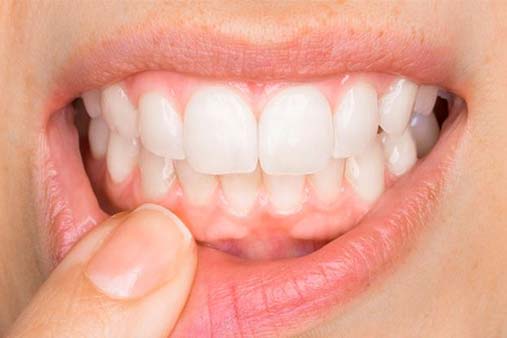Have you felt that sharp pain in your teeth from taking a sip of a cold drink? Tooth sensitivity is a very common occurrence, but it could indicate a more serious dental health issue. Want to know more? Keep reading––we will tell you about what causes tooth sensitivity and how you can combat it.
What makes my teeth feel sensitive?
Sensitivity is caused by erosion of or damage to your enamel. Enamel is the protective outer layer of our teeth that protects our soft dentin and pulp layers. It is one of the hardest tissues produced by the human body, but it is still susceptible to erosion. Unlike other tissue in our bodies, like bones, enamel cannot repair itself; once it is damaged, only your dentist can help prevent further damage to both the enamel and interior of the tooth. Erosion of enamel can lead to sensitivity and further develop into cavities if left untreated.
Common ways that your tooth enamel is damaged:
1. Diet
What you eat can impact your oral health. Foods and beverages that are high in sugar and acidity can damage your enamel over time––this includes coffee, wine, candy, and even fresh fruit! There is a close relationship between diet and oral health, and taking care of what you eat can help keep your mouth healthy. Our tips for minimizing damage to enamel?
- Brush and floss your teeth a minimum of twice daily
- Drink lots of water before and after consuming acidic or sugary foods
Wait and drink water before brushing your teeth after an acidic or sugary meal
2. Direct trauma to the teeth
While this is most common in sports, especially contact sports like hockey and football, direct trauma to the teeth can happen to anyone. If you play sports, we recommend wearing a mouth guard, which is custom-made to protect your teeth. Dental trauma should be taken seriously to avoid even more costly interventions in the future. If you experience damage to your teeth, call us right away to find out what to do next. Types of dental trauma can include:
- Chipped or broken teeth
- Dislodged teeth
- Trauma to the gums
- Chipped or broken filling
3. Bruxism
Grinding and clenching your jaw, especially in your sleep, is a common cause of enamel damage. If you experience dull headaches, sore jaw, and poor sleep habits, you might be suffering from bruxism without being aware. Only your dentist can see the telltale symptoms of bruxism and recommend an appropriate treatment. Common causes of bruxism can include:
- Stress
- Medication
- Health conditions such as Parkinson’s Disease
- Drug use
Saskatoon, sensitive teeth can be mediated with good oral care habits.
If you suffer from sensitive teeth, schedule an appointment––regular dental visits are the best method for prevention and care. Visiting your dentist twice annually can help alleviate the pain of sensitive teeth and prevent further damage. Regular cleanings and fluoride treatments can bolster the strength of your enamel and help maintain your oral health. Schedule your appointment today and take control of your sensitive teeth.





